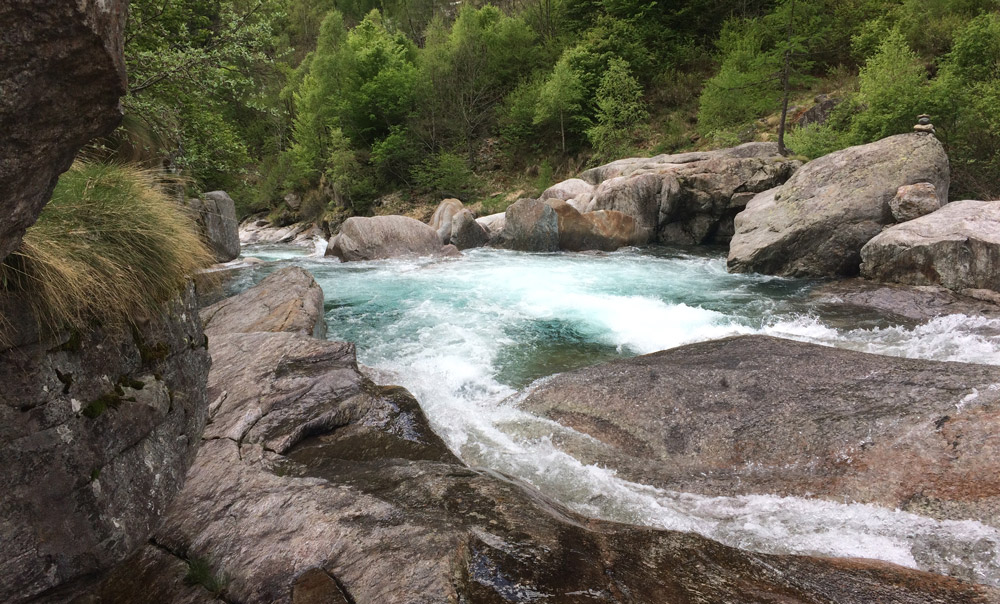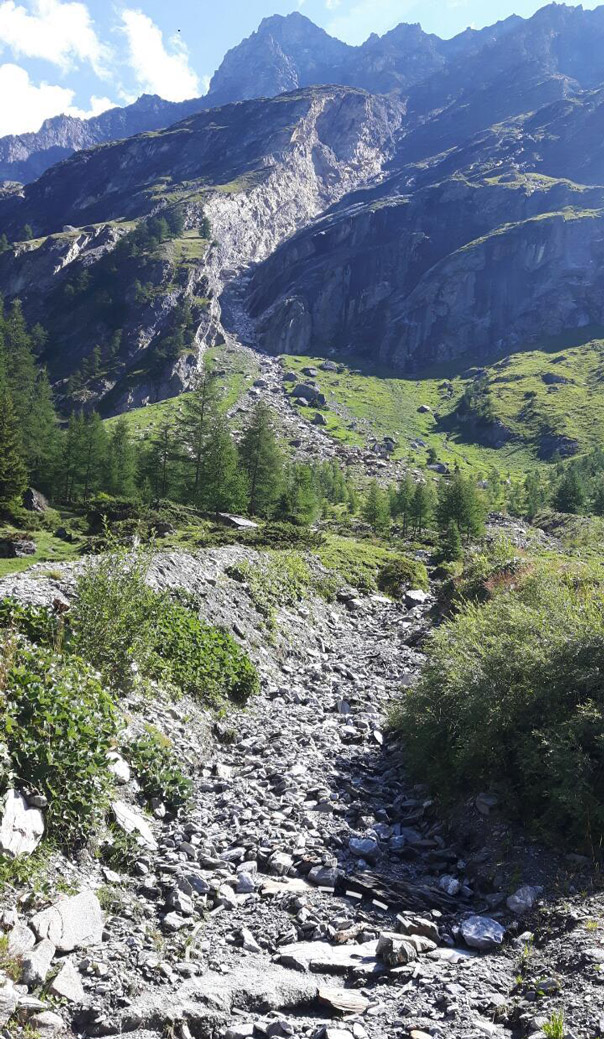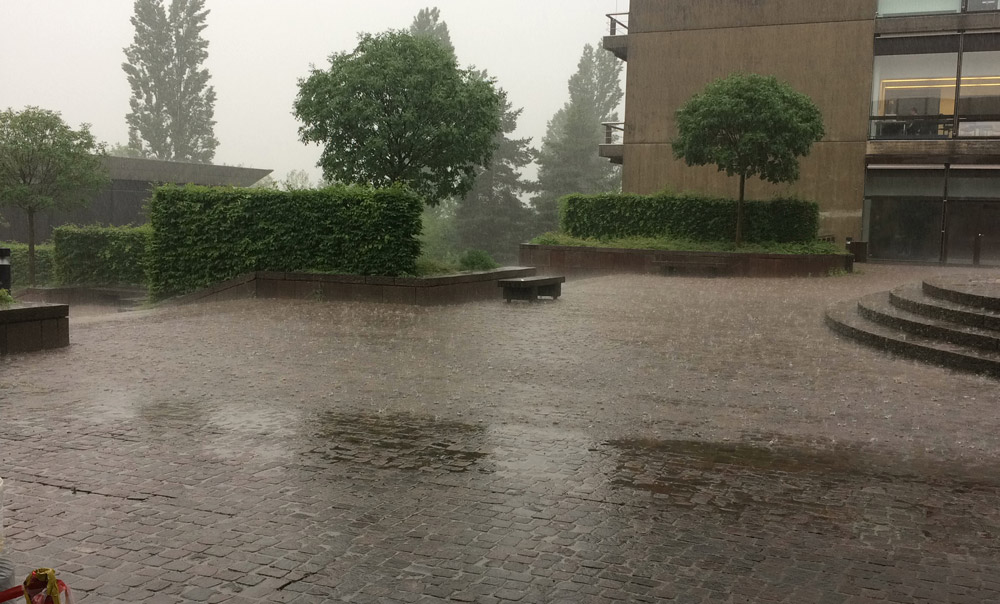#39: The value of water
"Water is life" – what comes across as a catchy slogan, gets to the point: The inestimable value of this resource. Much research is being done at GIUZ on water and its sustainable use, including outstanding master's theses.

For so many tasks in our daily lives we need water: showering, brushing teeth, cooking, washing, drinking, cleaning, flushing of the toilet. It is even more if we include the water needed to irrigate our growing food or to produce luxury goods like mobile phones or cars. All in all, an average person living in Switzerland uses 4000 litres of water every single day! With an increasing world population and the ongoing global warming, the need for water will increase and the water resources will get scarce: Sustainable water management is an indispensable necessity.
As for many global problems, our individual actions make only a small difference. But what we can definitely do is to share our knowledge on water related issues and to raise the awareness for a sustainable handling of this "liquid gold".
At our department, there is a lot of research about water that can be linked to sustainability. Some examples of master's theses written in our "Hydrology and Climate" group in the past five years give an idea of this broad spectrum.
Reliable hydrological models for drought conditions
These days soils are very dry in large parts of Switzerland because there was almost no precipitation in the last weeks (drought.ch). For such drought conditions, the importance of a sustainable water management in households and agriculture is obvious. Good hydrological models are needed. Fabian Ringli used phenological data to improve the outcome of hydrological models for drought conditions in his MSc thesis. The differing between summer and winter conditions allowed him to adapt the parameters to the corresponding phenological state and led to an improvement of the model.

A network of intermittent streams
More than 50% of the global river network is in a drying-rewetting cycle and can be classified as intermittent stream. Miriam Steinmann investigated in her MSc thesis the dynamics and properties of intermittent streams. Knowledge about these systems helps us to manage intermittent streams in a way that they can be conserved as a habitat and source of water, in particular in the context of the changing climate.
Land-use changes affect water resources
Another important issue related to sustainable water management is land-use change and in particular deforestation. Florencio Zanitti investigated in his thesis the changes in the hydraulic conductivity, represented by chemical and physical soil properties under altering land-use for soils in Madagascar. The upcoming problems due to land-use change or deforestation can be better managed if we know more about the impacts of these processes.
Decadal forecasts for hydropower
Switzerland generates a large proportion of its electricity from renewable energy sources, particularly from hydropower. Davide Saurwein wrote his MSc thesis about decadal forecasts for the hydropower sector, using hydrological and glaciological knowledge. Well-coordinated forecasts will make this type of energy production even more sustainable.
Pesticides in streams
Precipitation events are a major source of pesticides in streams. Samuel Schafer deals with this in his MSc thesis. A solid knowledge about the influences of different products used in agriculture on water quality is needed for fair discussions that take in view the different groups of interest and build the basis for sustainable solutions. This political discussion can be expected to flare up again soon after the corona crisis in the context of two upcoming water initiatives.

Raising public awareness for the value of water
Last but not least, Sanja Hosi developed a self-guided hydrological excursion in Baden. The aim of this excursion is to raise the public awareness for the value of water: It will be publicly available as a smartphone application by the end of 2020 and gives insights into different water related topics. Visitors will have another impression of the value of water for environment and society. The take-home message is clear: Handle this resource with care!
Franziska Schwarzenbach